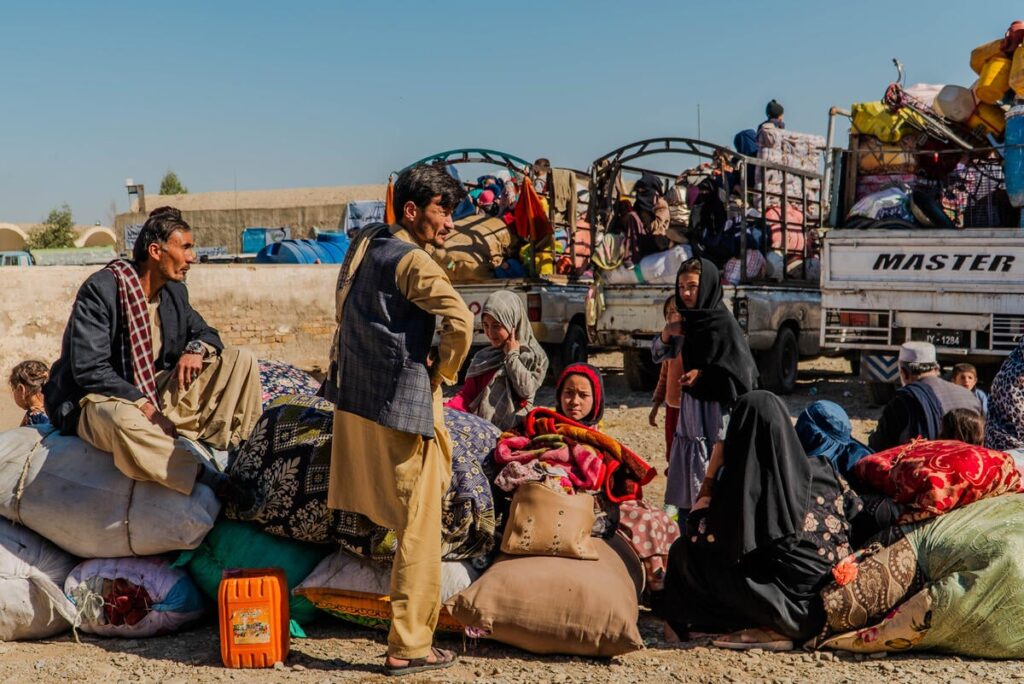ISLAMABAD: With less than two weeks remaining before the deadline for Afghans awaiting relocation to third countries, Minister of State for Interior, Tallal Chaudhry, has firmly ruled out any extension to the April 30 deadline for their repatriation.
Speaking at a press conference on Friday, Chaudhry emphasized that no illegal immigrants would be allowed to remain in Pakistan beyond the cut-off date and warned that anyone found aiding the illegal stay of Afghan nationals would face severe consequences.
The minister’s statement came ahead of Deputy Prime Minister Ishaq Dar’s scheduled visit to Afghanistan.
Chaudhry reiterated that the repatriation process of Afghan nationals and other illegal immigrants under the second phase of the “One-Document Regime” is currently underway.
The third phase, which involves deporting Afghans approved for relocation to third countries, will begin after April 30.
As of July 2024, approximately 44,000 Afghans who were approved for resettlement in Western countries following the Taliban’s takeover of Afghanistan in August 2021 were still residing in Pakistan.
These include individuals bound for the United States (25,000), Australia (9,000), Canada (6,000), Germany (3,000), and the United Kingdom (1,000).
However, updated figures on the ongoing relocation process have not been released by the Foreign Ministry or other relevant departments.
Despite initial progress, the relocation process has stalled significantly, leaving thousands in a state of uncertainty.
In November 2023, Pakistan launched a nationwide drive to expel undocumented foreigners, which has resulted in the repatriation of more than 907,000 individuals, many of whom were Afghan nationals.
Warning to Those Facilitating Illegal Stay
Chaudhry warned that any Pakistani citizens found facilitating the illegal stay of Afghan nationals would be held accountable.
This includes those who provide employment, rent property, or offer any kind of support to illegal immigrants.
He emphasized that only foreign nationals with valid legal documentation are permitted to rent property, operate businesses, or seek employment in Pakistan.
“Pakistanis can only engage with individuals who have the proper legal status in the country,” he stressed.
The minister clarified that Pakistan is pursuing a balanced approach, which includes diplomatic coordination with the Afghan government.
Read More: 153 Refugees Voluntarily Return to Afghanistan via Torkham Border
He also referred to reports suggesting that some of the weapons left behind by U.S. forces in Afghanistan might have fallen into the hands of terrorist groups, which poses a significant security threat to both Pakistan and the wider region.
Ongoing Repatriation Efforts
Chaudhry assured that the repatriation process is being conducted lawfully, methodically, and with full respect for human dignity.
The authorities are working closely with Afghan officials to facilitate a smooth transition, ensuring that Afghan nationals are provided with essential services like boarding, health care, and security at designated transit points.
The Ministry of Foreign Affairs is also engaged in ongoing coordination with the Afghan government to guarantee the safe and secure repatriation of Afghan nationals.
In the past two years, Pakistan has issued over one million visas to Afghan nationals under 16 different categories, providing temporary legal status to many while they awaited relocation or repatriation.
Meeting with Afghan Delegation
A delegation from the interim Afghan government recently met with the Minister of State for Interior.
The delegation, led by Acting Minister for Commerce and Industry Haji Nooruddin Azizi, included Afghanistan’s Minister for Refugees and Repatriation, the Afghan Ambassador to Pakistan, and other senior officials.
The discussions focused on several critical issues, including transit trade and the repatriation process for Afghan nationals. During the meeting, Chaudhry explained the purpose of the “One-Document Regime,” which aims to ensure that all individuals residing in Pakistan have proper legal documentation.
He highlighted that efforts would be made to facilitate the repatriation process and mentioned that over 50 transit camps have been set up across Pakistan, equipped with medical facilities and other essential services.
Also Read: Government of Japan assists Afghan refugees and host communities in Pakistan
Complaint cells have also been established under the supervision of provincial chief secretaries to handle any incidents or issues during the repatriation process.
Chaudhry assured the Afghan delegation that Afghan nationals holding Proof of Registration (PoR) cards would not face difficulties until June 30, 2024, allowing them some time to resolve their legal status.
